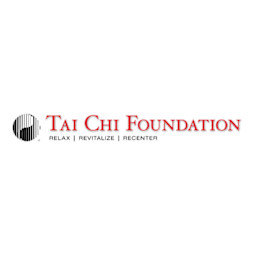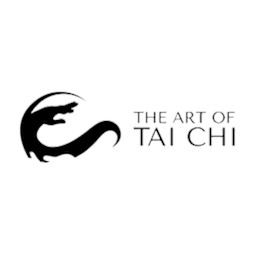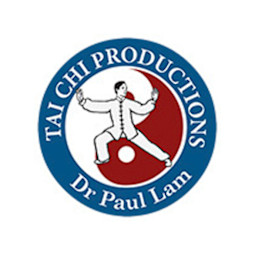The Best Online Tai Chi Classes Of 2023 To Ground Your Body & Your Mind

Tai Chi is a Chinese martial art that has been around for hundreds of years. Now, many people turn to this low-impact exercise for its mental and physical health benefits. According to Raymond Li, NASM-certifed personal trainer and founder of the Manhattan Tai Chi school, Tai Chi can improve balance and coordination1, cardiovascular health, and mental clarity2. The best online Tai Chi classes bring these benefits right to your home.
Below, learn more about Tai Chi and find our picks for the best online Tai Chi classes for beginners, seniors, and more advanced students.
The best online Tai Chi classes:
What is Tai Chi?
Tai Chi is an ancient Chinese martial art that has been practiced for hundreds of years. It's a form of low-impact exercise that can be done by just about anyone who is not movement-impaired, no matter their age or fitness level.
"[Tai Chi] involves a series of slow, graceful movements that are performed in a meditative state of mind," says Li, adding that the practice is sometimes called "meditation in motion."
The movements are typically performed in "a flowing, circular manner," Li explains. The practice is designed to promote relaxation, balance, and coordination and has been proven to offer both physical and mental health benefits.
What are the benefits of Tai Chi?
When it comes to the physical benefits of Tai Chi, the practice is known to help improve balance and coordination, especially in older adults, says Li. The flowing, gentle movements can also increase flexibility and joint mobility.
Studies suggest Tai Chi can improve cardiovascular health—and Li agrees. "Tai Chi is a low-impact form of exercise that can help to improve circulation, lower blood pressure, and strengthen the heart," he adds. Even though it's a low-impact exercise, Li says the practice increases muscle strength, especially in the legs and core.
As for mental health benefits, Tai Chi may lower levels of stress and anxiety as it promotes relaxation and mindfulness, Li explains. By reducing distractions and improving focus, Tai Chi can boost cognitive function. Plus, it may help increase energy, promote a sense of well-being, and even lead to a better night's sleep3, he adds.
Just about anyone can get in on these benefits, since Tai Chi is a gentle form of exercise for people of most ages and abilities. However, if you have severe osteoporosis, recent joint replacements, difficulty with balance and coordination, or are pregnant, Li recommends consulting with your doctor before giving it a try.
How to choose the best online Tai Chi class.
Consider the below factors when choosing the right online Tai Chi class for you:
The instructor: Before joining an online Tai Chi class, do some research about the instructor's qualifications. "Look for an instructor who has received proper training and certification in Tai Chi," Li suggests. "Consider checking their background, credentials, and experience."
The format: Li also recommends taking note of the class formats each platform offers. For instance, are the classes live or prerecorded? How interactive is the platform? "You may prefer a live class for the ability to ask questions and receive immediate feedback," Li notes. Or, you may enjoy having the ability to press play as you please.
The content: "Make sure the class covers the fundamentals of Tai Chi, including proper form, breathing techniques, and mindfulness," Li advises, suggesting you consider what level of experience is offered and whether it aligns with your practice.
How we picked:
Cost
The price of any exercise class can be expensive, so we took cost into consideration when picking the best online Tai Chi classes.
Reviews
Reviews from real people who have tried various online Tai Chi classes offered helpful insights for determining which Tai Chi courses were worth it and which weren't.
Instructors
We looked into the credentials of all of the instructors teaching the online Tai Chi classes that made this list. They're each qualified to teach Tai Chi and experienced in the practice.
Class type
Some studios offer a variety of class types, while others include specialized courses. These factors played a role in our selection of the best online options for different needs.
Our picks for the best Tai Chi classes of 2023:
Pros:
- Beautiful scenery
- High quality instructors
Cons:
- No shorter workouts
Subscription cost:
$20 monthly , $100 annually , $150 for two yearsDuration:
35 to 75 minutesFormat:
Online videosCompatible devices:
DesktopTabletSmartphoneWondrium is a subscription service with online videos covering many subjects, including Tai Chi. It offers a video series on Tai Chi for seniors, taught by international master Tai Chi instructor David-Dorian Ross. He has a B.A. in human movement studies and completed graduate course work in physical education and Chinese. Ross is also a seven-time U.S. national gold medalist in Tai Chi.
Ross’ class called Tai Chi for Aging with Strength and Tranquility is designed to lower stress and improve overall health. It’s suitable for seniors, with videos created specifically for those over 50 or 60 years old. The movements focus on promoting healthy joints and improving balance. Some can even be performed while seated.
“Great exercise video for us senior folks,” one reviewer writes. “Excellent value for the dollar. Instructor David-Dorian does an excellent job keeping the interest up.”
Pros:
- Options for beginners and advanced students
- Virtual live classes and on-demand videos
Cons:
- Limited library of content
Subscription cost:
Free ($75 to $125 for some premium classes)Duration:
3 minutes to 1 hourFormat:
Online videos or virtual live classesCompatible devices:
DesktopTabletSmartphoneThe Tai Chi Foundation (TCF) is a not-for-profit organization that has been teaching classes and training instructors since 1976. It offers beginner-level courses as well as a more advanced curriculum, including Push Hands partner exercises. A bit different from other methods, the Tai Chi Foundation utilizes team teaching, meaning two teachers are available during each class.
There are over 200 TCF-affiliated instructors in 30 cities across the world. You can take classes in person at TCF-affiliated schools, join live virtual classes, or choose on-demand courses online. Some classes cost money, but many are free.
“Great exercise video for us senior folks,” writes one reviewer. “Excellent value for the dollar. Instructor David-Dorian does an excellent job keeping the interest up.”
Pros:
- Easy to use
- Beginner-friendly
Cons:
- No longer form workouts
- A bit outdated
Subscription cost:
FreeDuration:
2 to 5 minutesFormat:
Online videosCompatible devices:
DesktopTabletSmartphoneTai Chi Health offers online Tai Chi programs for all levels and abilities and has been teaching Tai Chi in the traditional Yang style since 1972. Its Original Tai Chi Fundamentals Program is ideal for beginners, no matter your age or fitness level.
You’ll begin by learning the basic movement patterns that will prepare you for the postures, coordination, and balance you’ll do as you progress through the program. Free videos are available online, or you can search for a certified instructor in your area, join a workshop, or buy a DVD to use at home.
Pros:
- Classes for all experience levels
- Private one-on-one classes available
Cons:
- No on-demand classes
Subscription cost:
From $20 per classDuration:
30 minutes to 1 hourFormat:
Virtual live stream classesCompatible devices:
DesktopTabletSmartphoneThe Art of Tai Chi offers online, in-person, and private one-on-one classes. Beginner classes help people learn the basics of Tai Chi meditation and movement, while advanced classes allow students to refine movements and learn advanced concepts. In order to join these classes, you need to complete a Tai Chi form outlining your experience.
You can sign up for single live virtual classes or pay a monthly fee for access to a specific amount of classes per month. There are private one-on-one virtual sessions available for those with specific goals and needs.
Classes are taught by Irving Yee, a Tai Chi wellness instructor with more than two decades of experience. With experience teaching in corporate settings, his classes are mainly designed for working professionals who tend to have high levels of stress.
“Studying Tai Chi Chuan with Master Yee has been an inspiring and life transforming experience,” writes one student. “He is a great teacher: patient, kind, and clear with deep knowledge and experience.”
Pros:
- Access to a wide variety of programs
- Extremely qualified instructor
- Access to interviews with Tai Chi and medical experts
Cons:
- Pay for each program
- No live classes
Subscription cost:
From $24.95/two months or $124.75/year (for one program)Duration:
VariesFormat:
Online videosCompatible devices:
TabletSmartphoneComputerPaul Lam is a family physician who has been practicing Tai Chi for more than 45 years. He has created a wide variety of programs designed for specific needs and conditions, including Tai Chi for energy, Tai Chi for arthritis, Tai Chi for diabetes, and Tai Chi for osteoporosis.
Each program is available online, with a monthly or yearly membership. You can also bundle programs to access two to three programs at once, or pay a higher fee for access to all of the programs in the library. If you’re looking for free content, head to Lam’s YouTube channel.
Pros:
- Short classes available
- Optional live classes
- Qualified instructor
Cons:
- No content for advanced levels
Subscription cost:
$17 monthly, $190 annuallyDuration:
5 to 20 minutesFormat:
Online videosCompatible devices:
DesktopTabletSmartphoneA subscription to Taiflow Silver Freestyle Flow grants you access to short videos ranging from just five to 20 minutes. You can also sign up for a live class once each week. This is the most affordable membership available from Taiflow, but there are two other options to explore, with more premium offerings.
Classes are taught by Leia Cohen, who has been practicing Tai Chi since 2006. She trained in a traditional martial arts academy in Wudang, China and is certified to teach by her Chinese Master Yuan Xiu Gang. Along with her subscription-based content online, she also has a library of free Tai Chi instructional videos on YouTube.
“I was immediately drawn to Leia's teaching style, her easy-to-follow movements, her explanations giving deeper context to the practices, her patient manner, her voice, and the fact that she broke the routines down into smaller time frames that matched my energy level at the time,” one student says.
Pros:
- Authentic Tai Chi
- Classes for all levels
- On-demand classes
Cons:
- Minimum two-year commitment
Subscription cost:
$40 monthly, $395 annually, or $497 lifetime accessDuration:
VariesFormat:
Online videosCompatible devices:
DesktopTabletSmartphoneOffering beginner and more advanced classes, Tai Chi Online offers monthly and annual subscription options. Beginner classes include more than 100 online Tai Chi videos breaking down skills, stances, exercises, and drills. For those who have mastered the first year of classes, there are training sessions to deepen your practice, including intermediate and advanced principles and exercises.
Courses are designed by Michael Paler, who has more than three decades of experience in Chinese martial arts with a focus on Tai Chi.
One student writes, “Excellent resource. Expert guidance in a format that I can repeat, repeat, repeat. Every viewing affords deeper observation and inner experience.”
FAQ:
How many times a week should you do Tai Chi?
How often you should practice Tai Chi depends on your individual goals. Generally speaking, he says practicing Tai Chi two to three times each week is a good idea. If you're working toward a specific goal, you might do it more. If you are fatigued or feel pain, you might scale back.
How long does it take for Tai Chi to work?
It may take as little as a few weeks to feel the effects of Tai Chi. However, Li explains that it could take longer to see results, particularly if you're using Tai Chi for specific health conditions such as chronic pain and headaches. This really depends on each individual and what they're hoping to achieve from the practice.
Who should use Tai Chi classes?
Just about anyone can practice Tai Chi. "Tai Chi is generally considered to be a safe and low-risk form of exercise, and most people can participate without any problems," Li agrees. Tai Chi can be especially helpful for older adults and those looking to reduce stress and anxiety while building flexibility, coordination, and strength.
Can I teach myself Tai Chi?
While you can teach yourself Tai Chi using instructional resources and online classes, it's beneficial to have an instructor who can provide guidance and feedback or form and technique. If you do practice on your own, "just be sure to practice regularly, seek out quality instructional materials, and make an effort to receive feedback from others," Li advises.
The takeaway.
Tai Chi is a low-impact form of movement with many physical and mental benefits. It involves gentle movements, often performed in a circular flow. While hands-on instruction is beneficial, you can take online Tai Chi classes to learn the practice on your own. To further explore the world of online fitness, check out our guides for the best online workout programs and the best fitness apps for every experience level.







